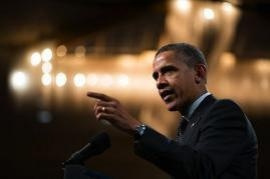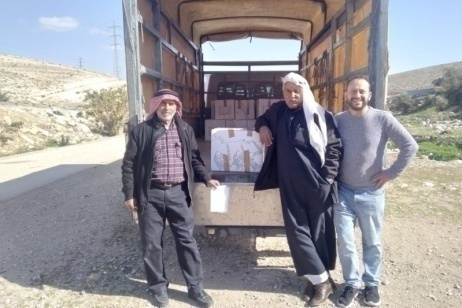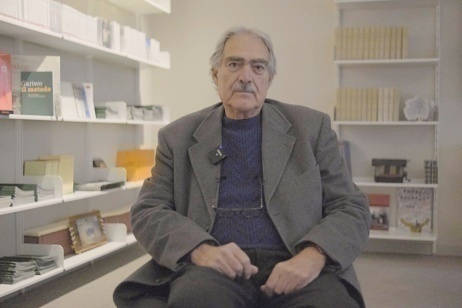
US President Obama
After the referendum of 16 March in Crimea, the international community approved different kinds of sanctions against Russia, up to the point of de facto suspending Moscow from the G8 – calling off the summit planned in Sotchi and establishing that a G7 will summoned in Brussels. We asked Vittorio Emanuele Parsi, professor of International Relations at the Catholic University of Milan, to tell us about the Ukrainan crisis and its possible effects on the negotiations about the conflict in Syria.
Let’s talk about Crimea. After the referendum on 16 March, Putin approved the annexion, while Biden talked about the possibility of sending troops to the Balkans. What will happen in the Ukraine? What are the future scenarios to be like?
The risk of a confrontation between the Ukraine and Russia is now realistic and always there. In any case, this situation will surely imply an increase in tension between the two shores of the Atlantic.
Someone talked about a new kind of imperialism on the footprints of Stalin. But what is the difference, if any, between Soviet imperialism and the one of Putin’s Russia?
The difference is essentially ideological. Putin’s ideology is different from the communist one. As regards the rest, Moscow’s actions are similar to the Soviet ones, so this attitude is unacceptable for the West.
From this point of view, do you think that Putin will stop with Crimea or will look also at the whole Ukraine?
I think the whole Ukraine is his final goal, not really by annexing it I think, but rather by the attempt to bring Kiev back into the Russian political sphere, to then keep it under Russian influence with the use of force. And this, too is unacceptable.
Now the EU and the US are discussing further sanctions against Moscow after those approved in the past days. How will the West now behave towards Putin?
First, the US and Europe are taking note of the change, the fact that Russia behaves inappropriately as regards the acceptable means to put forward one’s interests in the West. First of all we will have to learn that Putin’s Russia is no country like others, but unfortunately it is an authoritarian state that uses foreign policy to distract its population from the dictatorial regime. Secondly, it is now seriously perceived that we will have to diversify energy supply, as we did with the Arab countries after the crisis of 1973. Thirdly, we now have to work in order to favour a strong movement of civil society inside Russia, the only thing that can help change the country.
The Ukrainan crisis is starting having consequences also on another front, Syria. At which point is the conflict in Damascus? And how weighs on negotiations the fact that the US and Russia are moving away from each other after the recent events in Kyev?
Todate the civil war in Syria is on a stalemate, and instead the regime has strengthened since one year ago. There may also be upcoming elections in Damascus for the presidency.
This however does not make most players feel worried, as the opposition forces are now unfortunately under the hegemony of extremist and Islamist movements. Anyway we should not expect any major change in Syria, because America had already become less drastic towards Assad after the mistake made with the idea of bombing Syria following its use of gas. Therefore, actually the stances of the two great players are not so removed from each other now, even though the United States clearly learned a lesson from the Russian’s halting order on the Syrian issue, and are applying it to the Ukraine todate: given Moscow’s reaction to Washington’s proposal to use force against Assad’s regime, I can understand now America thinks that Russia’s behaviour should never be overlooked, as if it they were friends. The negotiation table where probably Moscow will make its unease weigh is instead the Iranian file, even though it must be said that Teheran’s regime seems to be more cooperative, and a solution seems to be closer. This is why, after all, Moscow’s reaction could be a little damage.
Always talking about Syria, the conflict is extending more and more, from Lebanon to Israel. How changed the balance and the relations of all players after three years conflict? And how will they change now?
Syria, which was a major regional power, is struggling for survival. In the Mideast, the Iranian action is overly exceeded by those of Saudi Arabia and Qatar. Israel is surrounded by such a strategic situation that probably is more reassuring than before. Egypt has become a client state of Saudi Arabia. Iraq is going through a civil war which is ignited in turn, more or less directly, by Ryad. Three years after the out break of the conflict in Syria, thus, the frame work is that of the Gulf that is reaching out its hand towards the Orient.





